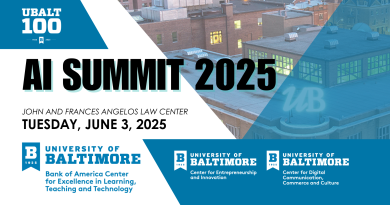What about Academic Integrity and ChatGPT?
by Pavan Purswani, Director for Student Support
Clear and Intentional Discussion
As was discussed in the Classroom Policy section, being transparent and setting expectations for the usage of Artificial Intelligence-based (AI) platforms in courses are important for several reasons. Firstly, it provides clear direction and understanding to students about when and if utilizing an AI-based platform is appropriate in your course. Secondly, it acknowledges your own awareness of the different technology or platforms that may exist. It also provides you with the opportunity to have more honest and in-depth conversations about services or shortcuts that may market themselves to students that could lead to more dire consequences. I find that often faculty and administrators are conflicted about acknowledging sites like Course Hero or Chegg and now AI-based platforms because there is a perception that by discussing them, we educate or validate students about them. While there may be some truth to that perception the reality is that there are several services operating in this space, many of which, particularly Chegg, have deep pockets that are already reaching students. I have seen firsthand when students experience harm by not receiving sage advice on how to navigate these platforms.
While both of the following resources were developed prior to the development of AI-based platforms, they each provide good perspective for faculty regarding how to talk to students about academic integrity as well as identifying the roles that everyone has when it comes to promoting the concept.
Advice from Students to Faculty Members about Protecting Academic Integrity
Detection
The unfortunate reality is that there is currently no foolproof method for identifying individuals using AI-based platforms unethically. That is not to say that these platforms are perfect or do not have hallmarks; however, the ability to prove their usage is complex. More broadly, most of the methods for the detection of Academic Integrity violations have limitations and weaknesses. Just like in many avenues, the moment detection of one method occurs, new ways to avoid detection continue to develop. As an individual charged with investigating academic integrity, my own concern is that, unless technology catches up, it feels as though we may need to develop a more forensic writing analysis approach which has the capacity to be arduous, to be time consuming, and to set the stage for a more authoritarian approach to education that is ultimately not beneficial.
Given the complicated nature of these circumstances, where should we go from here?
- Recognize that overt focus on rooting out cheating and preoccupation with catching students doing wrong may not create the learning environment you are attempting to cultivate.
- Conversely, when you do believe you have identified a potential violation of the Academic Integrity policy, please make sure to report the violation and communicate with the Office of Student Support. This ensures there is a record of the violation, the opportunity for greater equity in the management of potential violations and ensures consistent procedures in the management of these cases.
- The usage of multiple types of assessment at different stages (free writing assignments in class, rough drafts, research papers) can offer a window into student’s abilities and may provide context for comparing written submissions. It can also provide lots of options for creativity to both students and faculty through academic experience.
- Professor’s Guide to AI Text Detection
- Obsession with Cheating is Ruining our Relationships with Students
Citation and Attribution
While AI is certainly not new, the need to provide proper attribution and acknowledgement of its usage is still developing. Given this, when students are prompted to utilize it providing guidance for how you would like it cited will be very helpful in helping them navigate these waters. Additionally, there are larger conversations happening in academia about the implications of applying authorship to artificial intelligence entities. To that end, I have included an article that discusses Nature and Springer Nature Journals’ position as one of the first entities to decide.
- Tools such as ChatGPT threaten transparent science; here are our ground rules for their use
- Citing ChatGPT: A Comprehensive Guide on Proper Attribution
Resources on Academic Integrity and Artificial Intelligence
- Artificial Intelligence & Academic Integrity Session from the University of Maryland
- Handout from the Session
- Artificial Intelligence and Plagiarism Resources from the Partnership on University Plagiarism Prevention
Resources for Faculty Surrounding Academic Integrity at UBalt
A lot has been made of colleges and universities needing to update their policies to attend to artificial intelligence. While this is true, generally it has been understood that these platforms could fall under existing cheating violations because of being considered as utilizing an unfair advantage. Faculty taking the extra step to express what would be considered as inappropriate outside assistance in their syllabi and early on in courses adds an extra layer of clarity and awareness that can be very beneficial.



